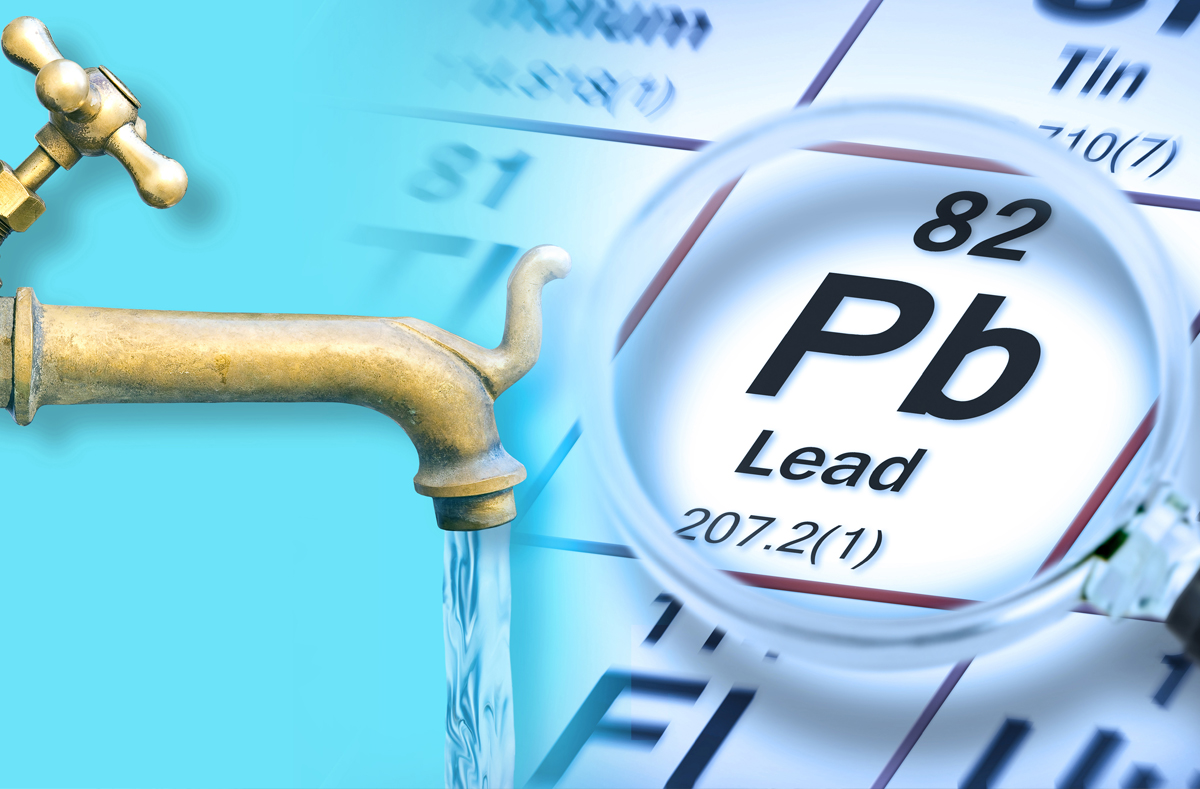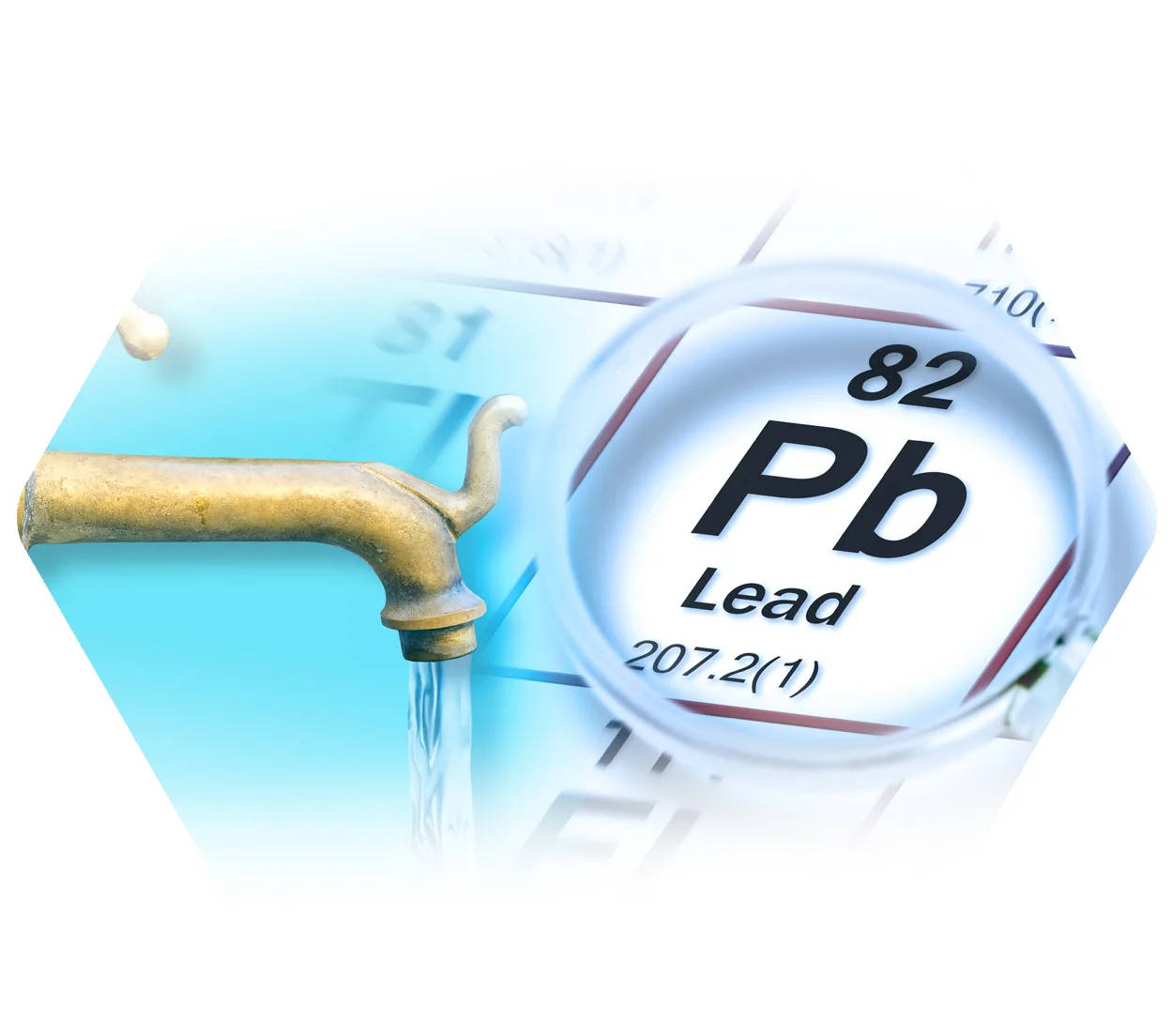Avoid the Dangers of Lead Pipes
Call Lee Mechanical for FREE Lead Service Line Replacement.

Lead is dangerous, and even small amounts can have serious health effects. Unfortunately, you can find it in most household plumbing, and your home’s lead service lines present the most significant source and risk of lead in drinking water.
The Centers for Disease Control and Prevention (CDC), public health organizations, and medical professionals agree there is NO safe level of lead exposure–which means you’re at risk even if you are just drinking from older homes with lead pipes.
What is a service line?
Service lines are the pipes that connect your home to the main water supply in your city. In most cases, the service line is responsible for bringing fresh water into your home, and it may also be responsible for carrying away wastewater.
If you have a lead service line, it means that at least part of your service line is made of lead. Lead service lines can leach lead into your drinking water, posing a severe health risk.
Lead pipes are fixtures of older neighborhoods. The installation and use were standard throughout the 1800s, with restrictions enforced only after 1986, when using lead lines became illegal.
What are the dangers of lead service lines?
Lead is a toxic metal that can cause serious health problems if ingested or inhaled. Lead can damage the brain, kidneys, and nervous system, and it is particularly harmful to children and pregnant women. Exposure to lead can also cause anemia, high blood pressure, and other health problems.
Lead service lines are a danger because they can leach lead into your drinking water. This can happen if the water is corrosive or there are breaks or leaks in the line. Even low levels of lead in drinking water can pose a health risk, particularly for young children and pregnant women.
According to the EPA, even low levels of lead in your drinking water can lead to these harmful side effects in children, pregnant women, and adults:
- Children
- Behavior and learning problems
- Lower IQ and hyperactivity
- Slowed growth
- Hearing problems
- Anemia
- Pregnant Women
- Reduced growth of the fetus
- Premature birth
- Adults
- Cardiovascular effects such as increased blood pressure, and the incidence of hypertension
- Decreased kidney function
- Reproductive problems (in both men and women)
If you think you may have a lead service line, it is essential to have it tested by a qualified professional. You should also have your water tested for lead if you live in an old home or use a private well.
How can you tell if your home has a lead service line?
If you’re not sure whether or not your home has a lead service line, there are a few things you can do to check.
- First, you can contact your local water utility company and ask them about the status of your service line.
- Second, you can look for signs of corrosion on your pipes. Lead pipes are more likely to corrode, so if you see any discoloration or flaking on your pipes, they may be made of lead.
- Third, you can have your water tested for lead. If you think there’s a chance that your home has a lead service line, it’s always best to err on the side of caution and have your water tested.
The age of your home is also a good indicator. The year of the first water service to your home is typically the same year the original house was built, but some communities may have used private wells before connecting to a public water system. If your home was built before 1986, it is worth investigating. If your home is closer to 1945, there is a solid chance you have lead service lines.
What should you do if your home has lead service lines?
If you think your home has lead service lines, there are a few things you can do to find out for sure and to protect your family from exposure to lead.
First, you can contact your local water utility company and ask about the materials used in your area’s water distribution system. Many utility companies keep records of the materials used in their systems, so this is an excellent place to start.
If you cannot get this information from your utility company, you can also contact your state’s environment or health department. These agencies may have records of lead service lines in your area and can offer advice on what to do next.
Once you know that your home has lead service lines, you will need to take steps to protect your family from exposure to lead. You can do this by:
- using only cold water for drinking, cooking, and preparing baby formula
- avoiding the use of hot water taps
- using a water filter that is certified to remove lead
- have your home’s water regularly tested for lead
If you take these steps, you can help to protect your family from the dangers of lead exposure.
Get your lead services lines replaced, for FREE, in Kenosha:
Kenosha has been awarded $1.95 million for a lead service line replacement, the first in the state to benefit from a new grant program through the Kenosha Water Utility.
The Kenosha Water Utility set up the grant system to help homeowners with the high cost of replacing the lead water service lines (laterals). Homeowners are responsible for the laterals from their homes to the property line, while the city maintains the pipes from the property line to the water main.
The Lead Service Line Replacement Program (LSRP) is a 100% grant to homeowners up to $6,000 for the cost of replacing the lead service lines.
Lead pipe replacements typically cost between $3,500 and $5,000.
The Kenosha Water Utility decided to offer the lead pipe replacement grant program after it was discovered that lead pipes were leaching lead into the water at some homes in the city.
In 2017, the State of Wisconsin gave local governments and water utilities a new authority to provide financial assistance programs for customers replacing their private lead service lines. Before Act 137 was passed in 2018, these institutions were not legally allowed to use revenue from utility rates to provide funding for private lead service line replacements.
The lead pipe grant program will help Kenosha residents replace their lead service lines and protect them from the health risks associated with lead exposure.
If you live in Kenosha and have a lead service line, we encourage you to take advantage of this program and replace your lead pipes as soon as possible.
Lee Mechanical works with the grant program and the City of Kenosha to inspect and update pipes in residential homes.
For more information, please contact the Kenosha Water Utility at (262) 653-4300 or call to schedule your appointment with Lee at (262) 657-9490.
Request For Service
"*" indicates required fields











